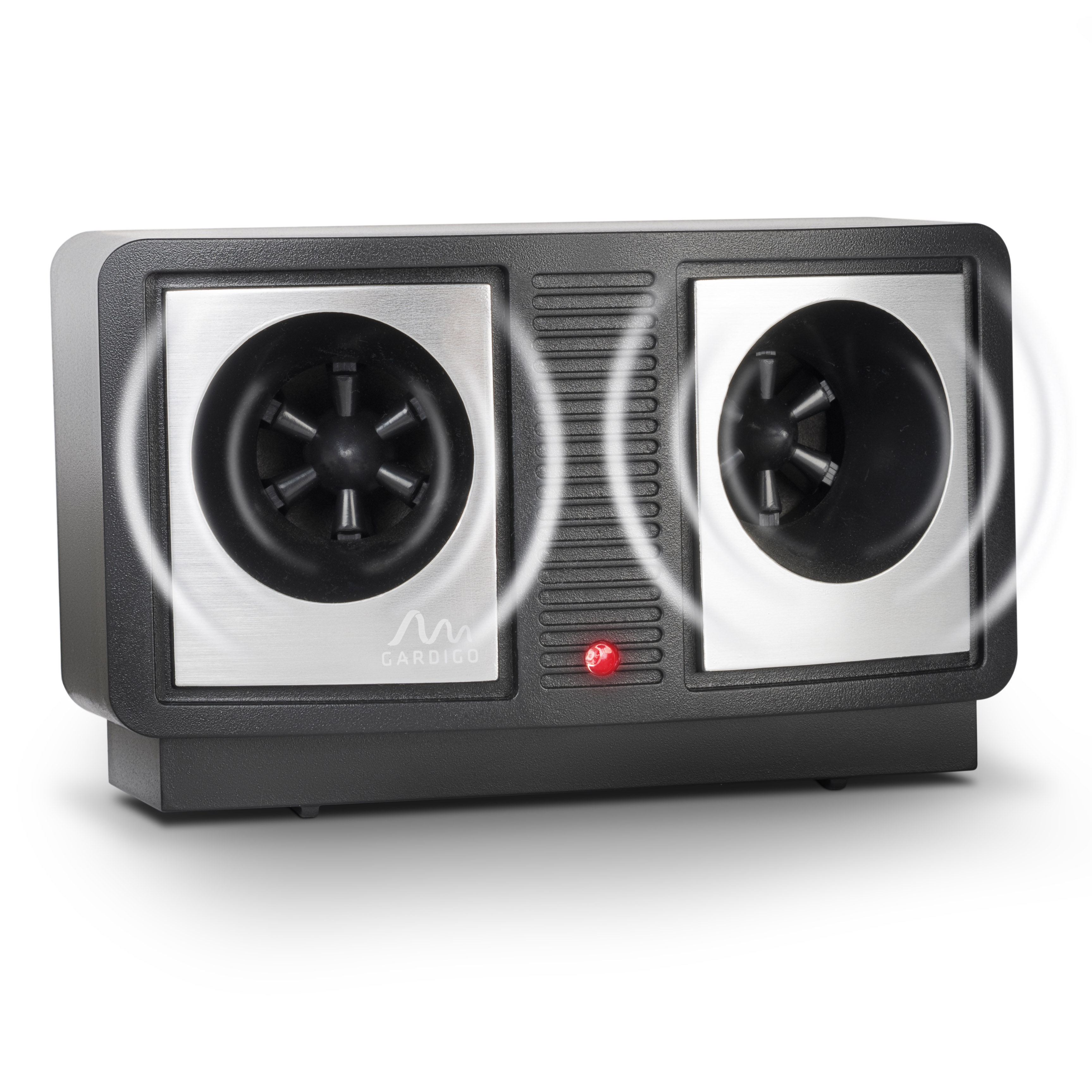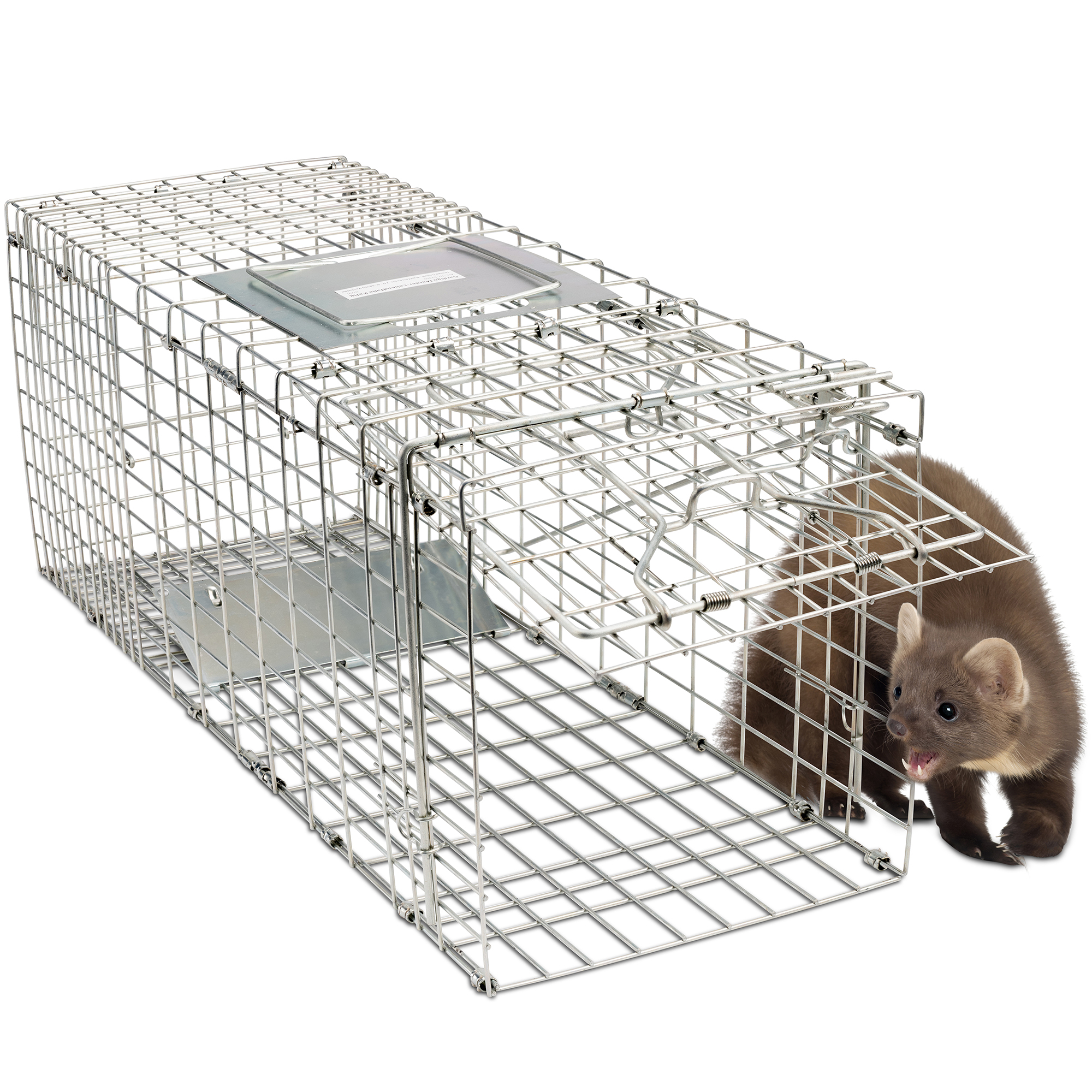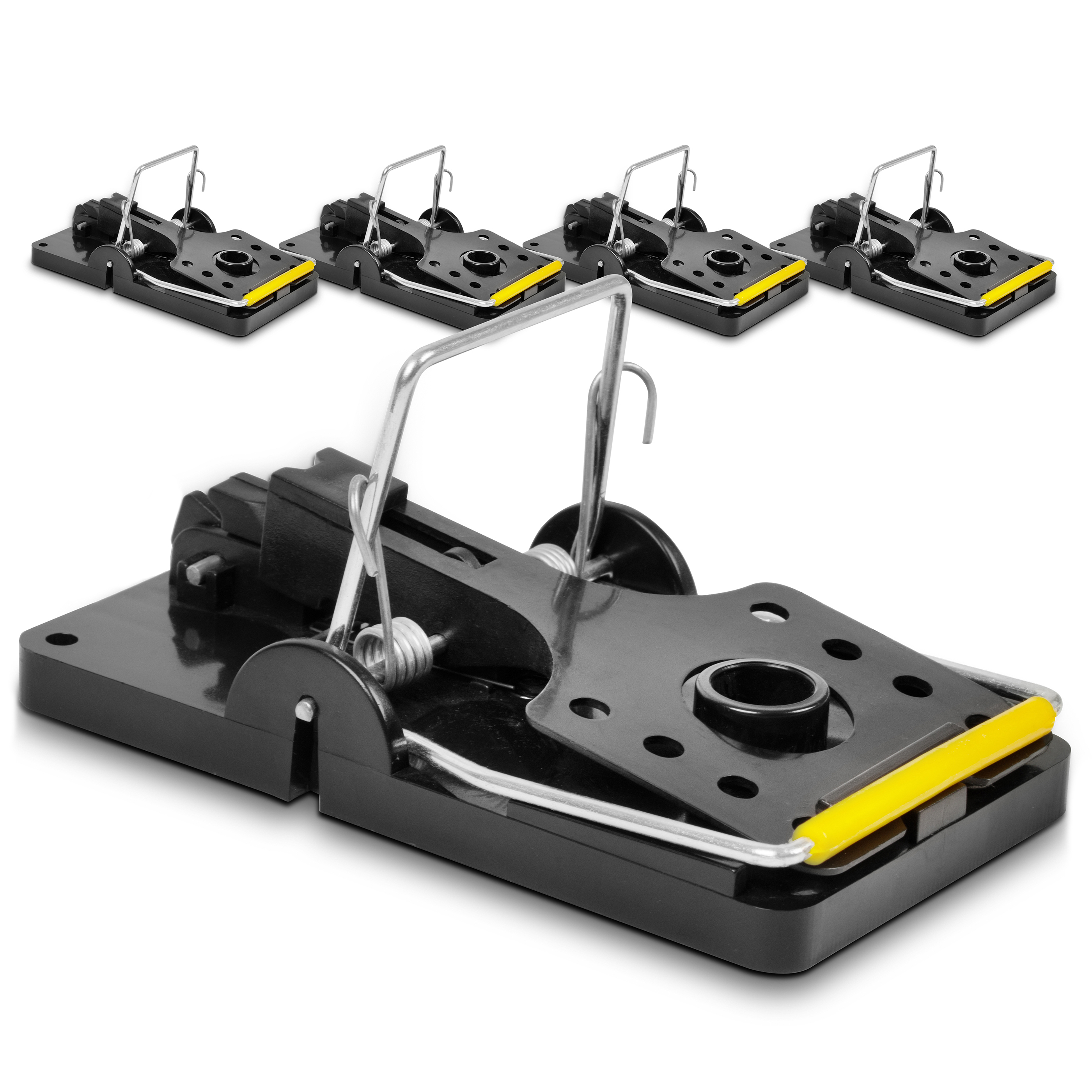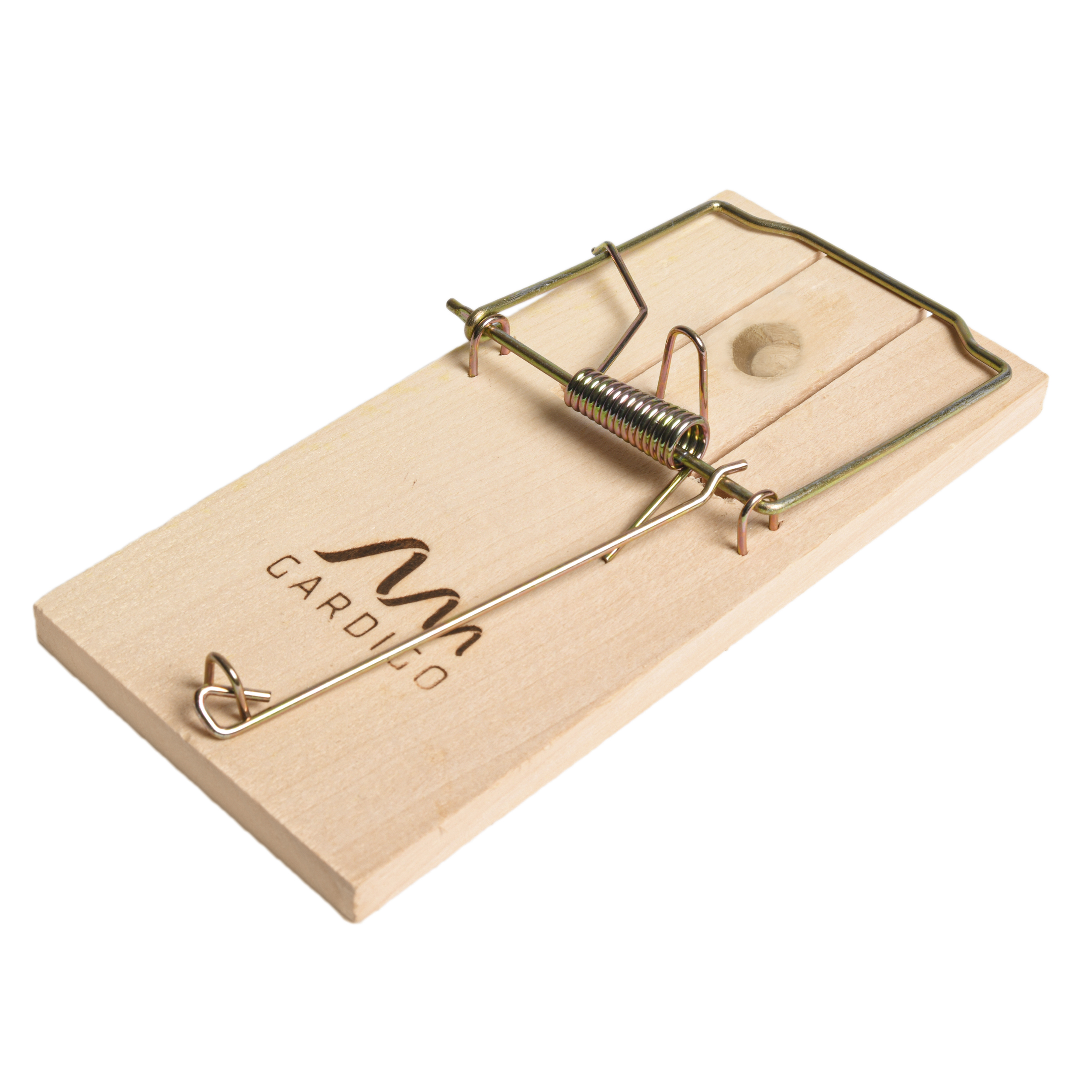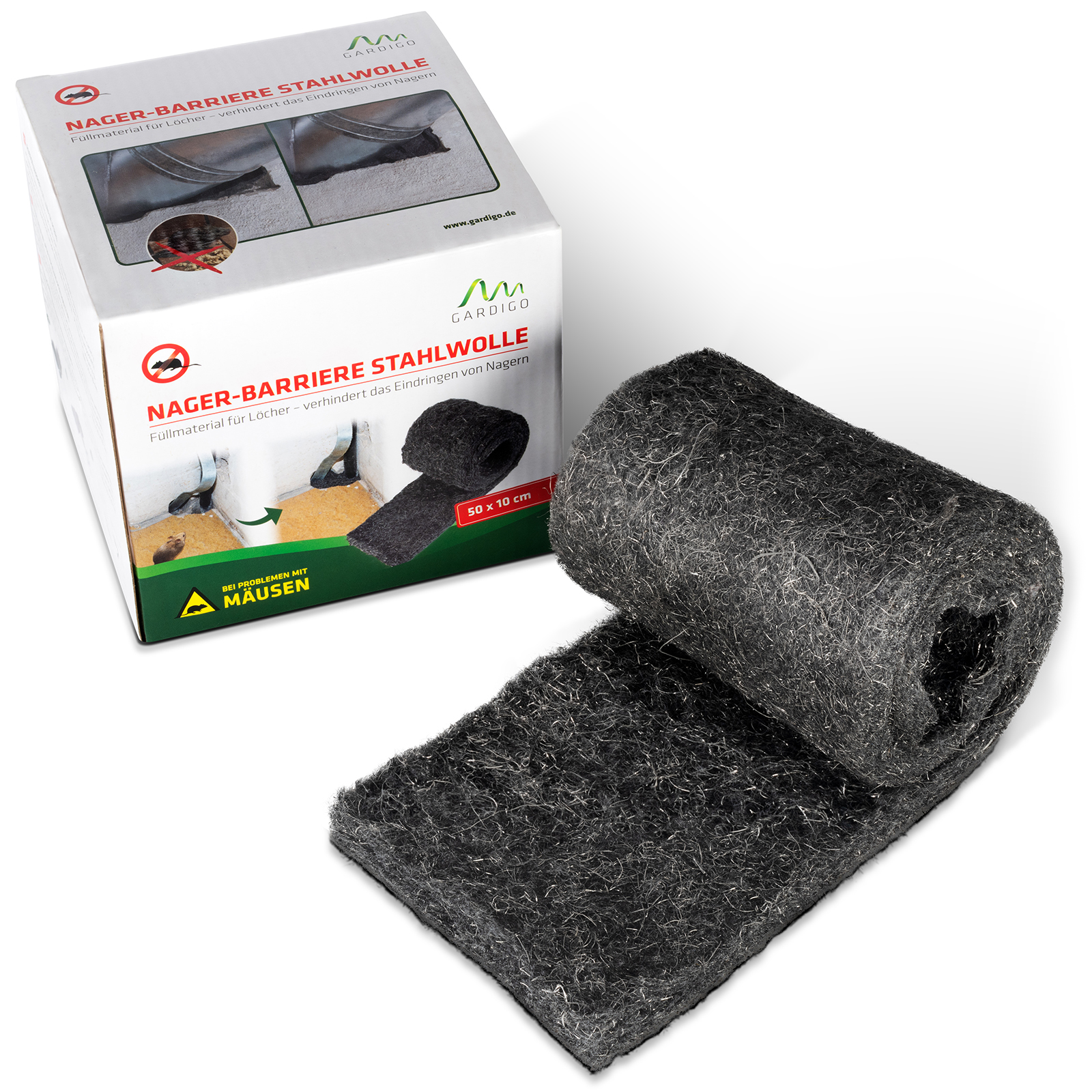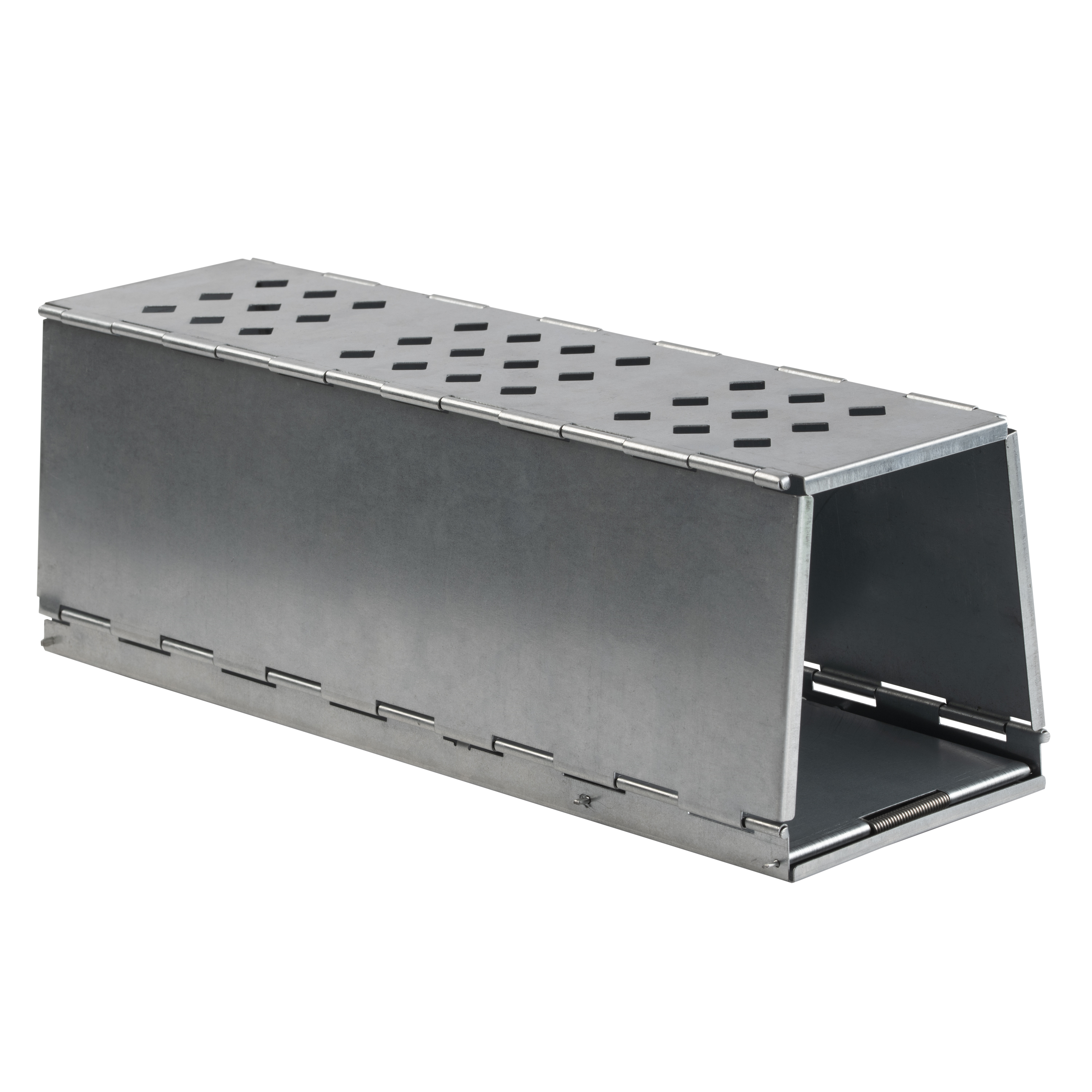
Pest control plus | vermin & mouse repellent | ultrasound & electromagnetic field

Frequently Asked Questions
There is no universal answer to this question, as it depends entirely on how you intend to use the trap and what you want to achieve. There are many types of rat traps, each with its own specific advantages.
Absolutely. Rats can do great damage and may spread diseases. Please check your local legislation if rodent control is mandatory by law where you live.
Yes! Historic plague epidemics were spread by rats. Fortunately, the Black Death no longer exists in Europe, but rodents can still transmit many other dangerous pathogens and parasites, such as:
- Echinococcus (fox tapeworm)
- Tuberculosis
- Hepatitis
- Hantaviruses
- Salmonella
- Leptospirosis
- Toxoplasmosis
- Fleas
- Swine and avian plague
- Trichinae
Rats are often attracted to food supplies, which makes transmission to humans quite likely. Hygiene is therefore extremely important when emptying traps. Always wear gloves and a protective mask when handling used traps!
Rats and mice are both rodents and look similar, but their behavior is very different. Mice tend to be curious, which makes them easier to trap. Rats, on the other hand, are very suspicious of new objects in their environment. Traps are therefore often avoided for a long time. In addition, rats are intelligent – if one rat is caught, the others quickly learn to be cautious.
Our Tip: To catch multiple rats, first place the traps without setting them. This way, they become established as feeding spots that the animals get used to. After a few weeks, set all traps at once to catch as many rats as possible.
The Different Types of Rat Traps
- Snap Traps
This type of rat trap has a striking bar that must be tensioned and fixed. Plastic and wooden snap traps use different mechanisms for this. Snap traps kill rats. They are equipped with strong springs and should therefore never be left lying around openly. We recommend the use of a rat trap box. - Live Traps
A live rat trap is essentially a small cage whose door closes when the trap is triggered. There are many different mechanisms and materials. Sturdy versions made of metal or wire mesh have proven effective, since rodents with their strong teeth can quickly gnaw their way out of plastic traps. - Poison Bait Stations
Rat poison must never be left exposed. For this purpose, there are special bait stations.
In any case, make sure that the traps are correctly sized for your pest problem. Mousetraps are usually too small to catch rats.
Wood or Plastic – The Differences Explained
Snap traps made of wood and plastic may look similar, but there are a few key differences in handling.
The striking bar of our plastic rat traps can be lifted simply by pressing the tensioning bar. They have a mechanism in which the bar locks into place. This design makes not only tensioning easier but also emptying the trap after a rat has been caught. Plastic traps can be rinsed under water, which is important so that the next rat does not detect danger. For repeated use, we therefore recommend plastic traps.
With wooden rat traps, on the other hand, the striking bar must be lifted directly, which is less hygienic. Cleaning is more difficult because of the absorbent and rough surface of the wood. On the positive side, wood is an ecological, renewable raw material that is biodegradable. When disposing of wooden traps, be sure to separate the wood and metal parts.
How to Set Up a Rat Trap Properly
We recommend placing traps along the rat’s runways, usually along walls. It is also important not to leave scent traces on the traps. Wearing gloves while baiting and setting the traps is best. Also remember to protect children and pets. Do not leave set rat traps lying around openly!
Humane Live Traps – Only with Proper Use!
Live rat traps are generally considered a humane solution. However, this is only true if they are used correctly and checked regularly. The German Environment Agency recommends checking rodent traps at least every 8 hours to ensure that the animals do not starve or suffer from prolonged stress. Anyone who cannot manage this should not use live traps. In such cases, a snap trap is more humane.
The Best Baits for Rat Traps
- Hazelnut spread
- Peanut butter
- Grains
- Bread (preferably a strongly scented, seeded type)
- Chocolate
- Pet food
- Hard-boiled egg
- Bacon
Since rats are omnivores, many different baits are suitable. It’s best to try various foods to find out what your local rat population prefers. From GARDIGO you can also purchase rat traps that come with bait.
Repelling Rats with Ultrasound
Also useful as prevention: Rats, mice, and other rodents communicate using sounds in the ultrasonic range – frequencies so high that humans cannot hear them. Rodent deterrent devices emit such sounds, which interfere with their communication. The environment becomes unpleasant for them, and they will look for a more comfortable place to stay. In this way, rats can be driven away with ultrasound.









